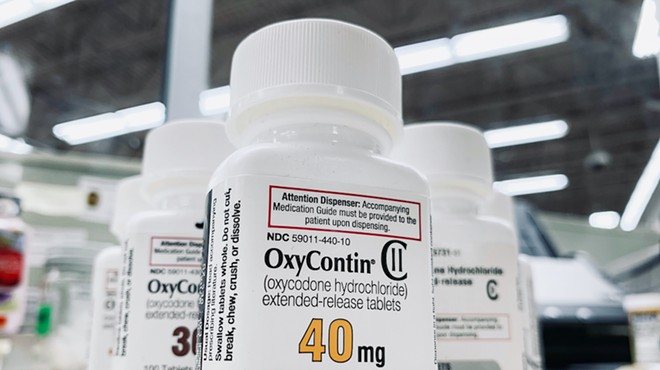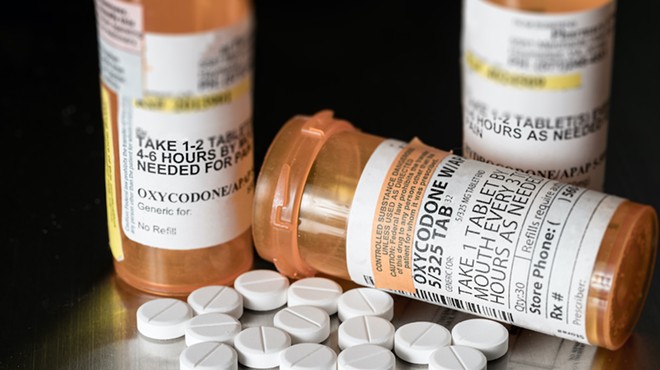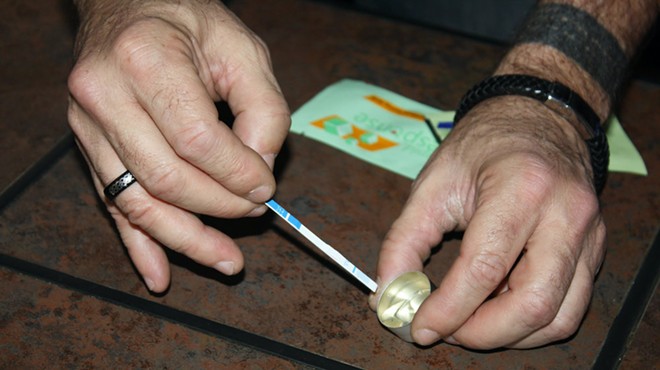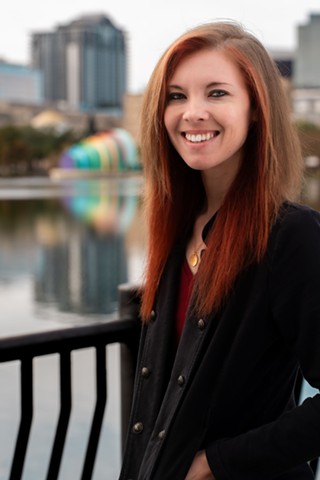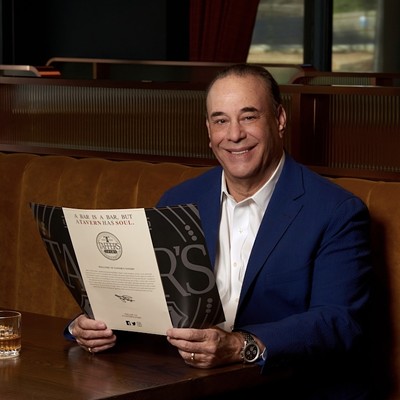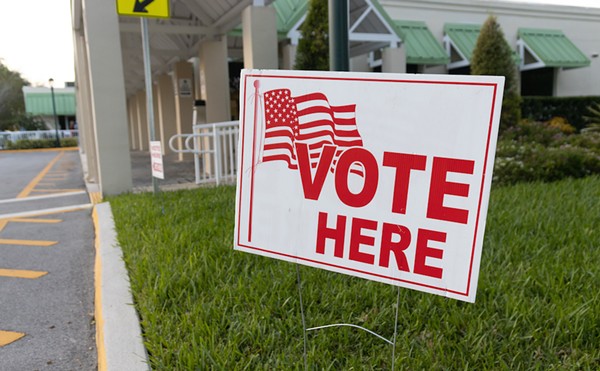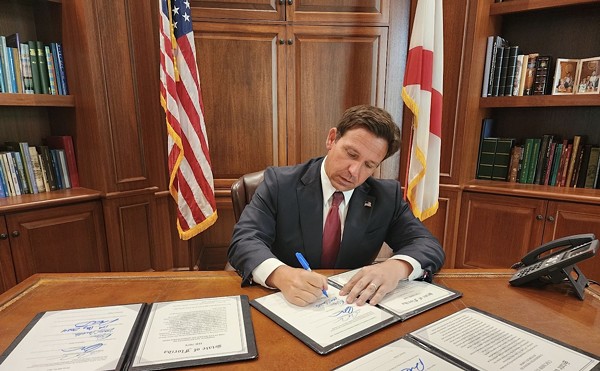
Opioid addiction and overdose has for years devastated individuals, families and communities in Orange County. But with progressive actions taken by county leaders and community partners armed with new resources, more help appears to be on the way.
As money from national settlements in opioid lawsuits come in, the county is investing those funds into treatment programs, as well as prevention and recovery services.
The goal is to reach anyone who needs help, or is at risk for overdose, but with a focus on those who may otherwise struggle to access care otherwise, due to barriers like cost or lack of reliable transportation.
Over the last month, Orange County has made three new investments on the treatment and recovery side — all funded entirely by opioid settlement funds, paid out by drug manufacturers and pharmacies sued over their role in the U.S. opioid epidemic.
Since April, the Orange County board of commissioners has agreed to dedicate $365,800 for a care coordination program in select Orlando Health hospitals; $702,968 for a cost-free residential treatment program for low-income pregnant women or new moms with opioid use disorder; and $506,200 for a medication-assisted treatment program staffed by a full care team near downtown Orlando.
The first program, run by Orlando Health, designates clinicians or social workers to essentially touch base with patients in hospital emergency departments and inpatient wards who have overdosed, or who have symptoms of opioid use disorder. Filling these roles are professionals with knowledge of substance misuse, dubbed “opioid navigators.”
From there, a navigator will talk with the patient, learn more about their needs, and offer to help connect them with resources in the community. Orlando Health also offers medication-assisted treatment for patients who need it.Medication-assisted treatment, generally consisting of FDA-approved medication coupled with counseling, is the most effective treatment for opioid use disorder. It can also cut the risk of overdose for those who relapse by half or more.
Jaime Bridges, a former Orlando police officer of 13 years and licensed clinical social worker who coordinates the program, admitted not everyone navigators talk to is ready to seek help.
“If you've ever seen somebody overdose, or what the aftermath of an overdose is, a lot of times they're not ready,” Bridges told Orlando Weekly. “They’re overwhelmed.”
Naloxone, the medicine that can treat an opioid overdose and prevent death, can sometimes throw a person who has become dependent on opioids into withdrawal. This can cause really uncomfortable symptoms like nausea and vomiting, anxiety, fever and tremors. Temporary symptoms, but physically unpleasant nonetheless.
If someone does refuse help, Bridges said what navigators will do is provide them with naloxone (also known as Narcan) and a phone number that they can contact when and if they do feel ready. Bridges said this happens more than you’d think.
A lot of times, she explained, people will reach out to her months after they showed up in a local emergency department for overdose. And when they do, they’ve already established that rapport, and she can connect them with the resources they need to begin the road to recovery.
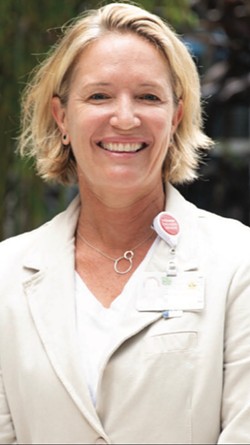
Bridges, who’s in recovery from opioid use disorder, has been there. As an Orlando police officer, Bridges was injured on the job and was prescribed pain medication — specifically, opioids. She became dependent on them, and eventually her drug use became enough of a problem that she had to leave the job.
“I didn’t really have anybody to talk to, because I didn’t really trust anybody,” Bridges admitted. She’d already completed her master’s degree as a police officer, so when she left, she worked on her recovery and got licensed to become a social worker.
Her lived experience with addiction, a disorder still seen by many as a sign of weakness, “means a lot” to the patients she helps today at Orlando Health hospitals. Especially when she shares that she became addicted to pain pills as a police officer.
“It shows you that it doesn't matter who you are, this disease doesn't care,” said Bridges, who’s now been in recovery for over a decade. “Doesn't care [about] your color, it doesn't care who you are, who you work for, what education you have — it can get anybody.”
On the inpatient side of Orlando Health hospitals, Bridges said navigators have more time to counsel and talk with patients, including those admitted for a related medical issue such as endocarditis — an infection of the heart’s inner lining that can develop in people who inject drugs.
The Orlando Health program was first launched in 2019 at the Orlando Regional Medical Center, thanks to grant money from the federal Substance Abuse and Mental Health Services Administration.
Today, Orlando Health has opioid addiction navigators at three hospital locations — ORMC, Winnie Palmer, and Arnold Palmer downtown. A team of healthcare professionals also unofficially provides similar opioid treatment services at Orlando Health Dr. Phillips — unofficially only because they don’t have a designated navigator there, just that team of providers taking on extra duties.
Finding the funding and staffing for an expansion has been a challenge, said Bridges, who's tried negotiating with the hospital administration herself.
With these new funds from the county, however, the goal is to overcome those barriers, so patients at the Dr. Phillips location — and hopefully Orlando Health’s Health Central location in Ocoee, too — can have the same access to support and care coordination as those at the other locations.
“Every patient deserves the same opportunity as the next patient,” said Bridges. If a patient doesn’t have insurance, or can’t afford treatment, she said the funds they receive help ensure that no one is turned away.
Helping those most in need
Chief executive officer Cheryl Bello heads a nonprofit called Specialized Treatment, Education and Prevention Services (STEPS), which also received opioid settlement funds from Orange County to fund one of their existing residential programs in Apopka and a new program they intend to launch in Parramore.
The residential program prioritizes helping pregnant women with opioid addiction who are uninsured or not eligible for Medicaid. It’s an intensive six-month program, according to Bello, that offers individual and group counseling, medication-assisted treatment, and job assistance.
At the end of a patient’s stay, Bello said patients are expected to have a job waiting for them by the time they leave. When asked if or how they help patients who face barriers to gainful employment — like a criminal record — Bello said simply, “We teach our patients to advocate for themselves.”
Funds recently approved by the county will fund 10 beds for new or soon-to-be moms in the residential program, at no cost to the patient. The funds will also cover up to 12 months of evidence-based treatment and recovery services postpartum, including medication-assisted treatment.
Once women leave the live-in treatment setting, Bello said that a lack of transportation and childcare are some of the most common barriers women face in continuing their treatment. They don't have a car, or they can't find someone to watch their kids.
To help patients avoid those pitfalls, her nonprofit steps up to coordinate with local childcare providers, and will give patients a ride or bus pass, not only to a treatment session — but also to baby wellness check-ups, or a job interview.
A person's needs for help vary from person to person. “We look to remove the barriers that we perceive for those individual needs,” Bello explained.
On Tuesday, Orange County leaders also approved another contract with her nonprofit fund a new treatment program at the Orange County Medical Clinic close to downtown. This program, at 101 S. Westmoreland Drive, will prioritize people with addiction who were recently released from jail, are pregnant, or who have repeatedly ended up in hospitals or emergency rooms for drug overdose.
“Every patient deserves the same opportunity as the next patient”
tweet this
The aim is to help reach people who have a higher risk of dying from overdose, including formerly incarcerated people with addiction who don’t have the same tolerance for drugs that they did before they entered jail or prison.
Research has found that incarcerated people are at least 40 to 129 times as likely to die from a drug overdose just in the first two weeks of their release, compared to the general public.
That’s why Orange County leaders decided to establish a medication-assisted treatment program in Orange County Jail in 2022 — the first of its kind in Florida.
“Orange County is really very progressive in terms of health services that are being offered in the jail,” Dr. Thomas Hall, director of Orange County’s Office for a Drug-Free Community, told Orlando Weekly earlier this year.
The new clinic program downtown, offering medication-assisted treatment, will be accessible to any county resident with opioid use disorder, Bello confirmed. They aim to make it open both to referred patients and walk-ins, with an expectation of treating roughly 250 patients per year.
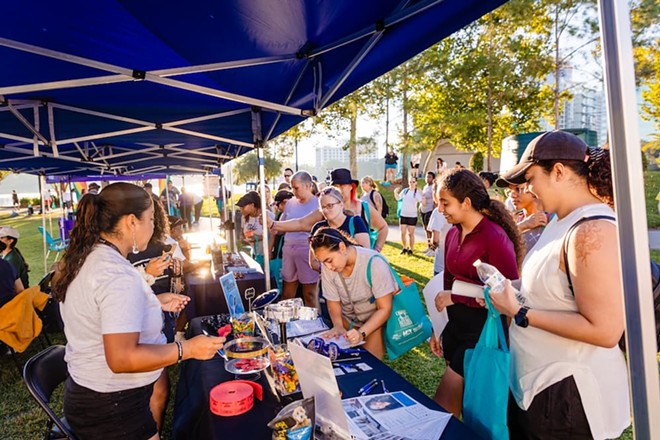
Altogether, more than $50 billion is expected to be paid out to state and local officials across the U.S. from the opioid settlements, with a portion of that going to state and local governments in Florida. It’s not a lump sum, and funds will be paid out over several years.
Orange County, for its part, has a team of healthcare professionals and law enforcement representatives, known as the Opioid Advisory Committee, that have worked on plans for how the county should use these settlement funds.
The committee meets quarterly to discuss progress reports for existing programs, and to discuss any developments in the broader substance use or treatment landscape in Orange County — for instance, the number of overdose calls that are coming into emergency dispatch centers, or local trends in drug use or drug seizures.
Substance use experts frame investments in treatment and prevention services to be a cost-saving measure, once you take into account the cost of drug use on the healthcare system, criminal justice system and losses in productivity.
It’s also a public safety issue — and a very personal one for people affected by addiction.
Between 2014 and 2019, opioid-involved overdose deaths in Orange County nearly doubled, from 175 to 342, leaving hundreds of families to mourn a loved one who was either addicted to drugs or perhaps just used a powerful drug like fentanyl once.
The crisis worsened during the COVID-19 pandemic, when it was harder to access treatment, and many people found themselves struggling with common risk factors for drug misuse, such as depression and anxiety.
Orange County has recently invested its opioid settlement funds in other initiatives, too — such as the distribution of tools to help test street drugs for fentanyl — in an effort to curb the problem.
Fentanyl, a highly potent opioid, was involved in roughly 65% of overdose deaths in Orange County last year, according to county medical examiner data, with half of all overdose deaths attributed to fentanyl laced into another drug.
The U.S. Drug Enforcement Administration (DEA) estimates that 7 in 10 counterfeit pills sold on the street or online contain fentanyl, a drug that's roughly 50 times more potent than heroin.
That means, even if you aren't specifically looking for fentanyl, it is highly likely it will be in whatever pill you buy through the illegal drug market anyway. And because fentanyl is so strong, as little as 2 milligrams (equal to about 10 to 15 grains of table salt) can be deadly.
But there is reason to be hopeful. In 2022, Orange County saw its first small drop in fatal overdose deaths for the first time in years — from 532 in 2021 to 471 in 2022.
And while the number remained relatively stable in 2023, dropping a little, local experts are hopeful that these new programs — and more to come — will help.
“We're never going to outspend those who are bringing this kind of harm to our community,” said Dr. Hall during a quarterly meeting of the Opioid Advisory Board earlier this year. “The best we can do is to be as judicious with the funds that we have, demonstrate outcomes, and through those demonstrated outcomes, seek additional funds to expand those programs.”
Follow us: Apple News | Google News | NewsBreak | Reddit | Instagram | Facebook | Twitter | or sign up for our RSS Feed

